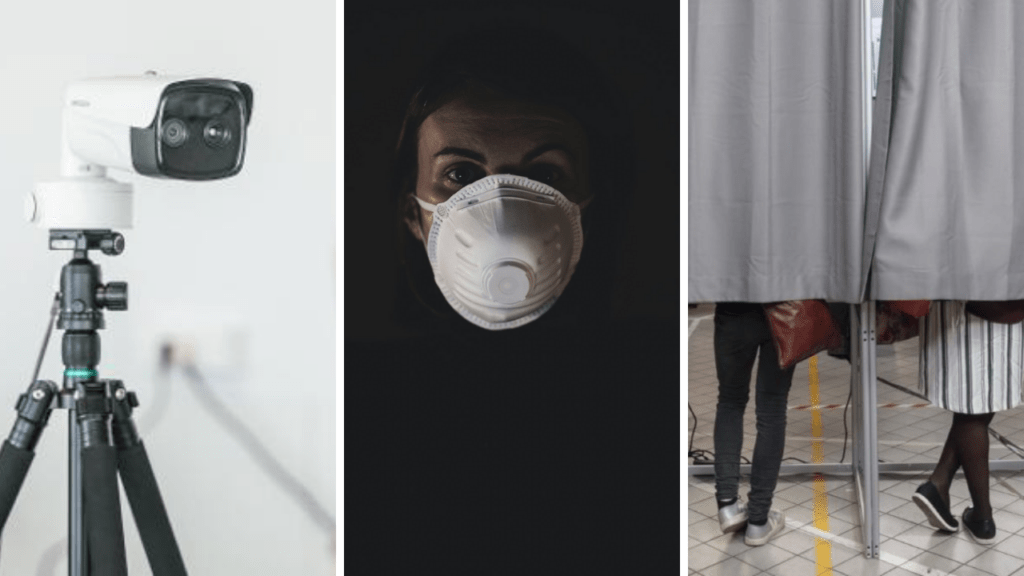Today marks a strange edition of Belgium in Brief. For over 70 editions one thing has been a constant, the daily coronavirus figures for the country.
While they may have dropped lower on the list, or fallen from public interest, we have consistently reported the press conference and the numbers.
Since March, Sciensano has published the latest figures about the number of new infections, hospital admissions and deaths for the past 24 hours in Belgium on its website, every day at 11:00 AM.
Today, however, it didn't - which we'll explain further down.
With that being said, we'll have the figures up as soon as we get them, so keep an eye on the website.
With so much information, and so little time to catch up before it potentially changes again, here are some of the top stories from around the country to get you up to speed.
Belgium in Brief is a free daily roundup of the top stories to get you through your lunch break conversations. To receive it straight to your inbox every day, sign up below:
1. Belgian Coronavirus response ranks worst in global study
Belgium’s response to the coronavirus crisis has been deemed the bottom of the class, according to a new international study by the Economist Intelligence Unit (EIU).
The damning results from the EIU rank Belgium as doing the worst out of 21 OECD members, based on an assessment of three “quality of response” criteria (number of tests, provision of non-Covid-19 healthcare and the number of above-average excess deaths).
With a score of 2.11 out of a possible 4, Belgium ranked worse than Italy, Spain and the United Kingdom, who all ranked next worst with a score of 2.22. Read More.
2. Ghent removes Leopold II statue: ‘His criminal actions do not deserve tribute’
A bust of former Belgian King Leopold II will be taken down from display in Ghent, as part of a wider push in the country to face up to the legacy of the colonial ruler.
Currently sitting in Zuidpark, the statue will be officially removed on 30 June – a symbolic date to coincide with the anniversary of Congo’s independence in 1960 – the city announced on Thursday.
Under Leopold II’s colonial regime, millions of Congolese people died. Lack of reliable sources have made it difficult to form an accurate estimation, but modern estimates range from 1 million to 15 million. In recent years, a consensus of around 10 million deaths has been reached among historians. Read more.
3. Latest coronavirus figures delayed due to lab mistake
Belgium’s daily update on the new coronavirus figures for the past 24 hours has faced a delay on Thursday due to a mistake made in one of the laboratories.
One lab reported incorrect figures about the latest coronavirus infections to Sciensano, Belgium’s national health institute, on Thursday, causing a delay in the reporting of the new situation.
Since March, Sciensano has published the latest figures about the number of new infections, hospital admissions and deaths for the past 24 hours in Belgium on its website, every day at 11:00 AM. Read more.
4. Police chief acknowledges ‘slip-ups’, denies institutional racism
The head of the federal police spoke out against claims of institutional racism in the police on Thursday on Flemish radio.
After demonstrations in the United States denouncing police violence against African-Americans, a debate about police violence against racialised people started in Belgium.
Marc De Mesmaeker, Commissioner-General of the federal police, said he does not like the way this debate was launched. Read More.
5. Lockdown-exit group working on a coronavirus threat-level system
Experts tasked with steering Belgium out of the coronavirus lockdown are working on a threat-level system for the coronavirus pandemic.
The threat-level analysis would work similarly to the five-level system currently used to rate the threat of terrorism at any given moment in the country.
For each level in the system there would be a series of accompanying measures which could be applied throughout the country or at a more local level, De Standaard reports. Read more.
6. Airport temperature checks break data privacy laws
The temperature checks imposed on passengers at Brussels Airport are prohibited by Belgium’s and the EU’s data privacy laws, Belgium’s data privacy watchdog said.
In an online statement, Belgium’s Data Protection Authority (GBA/APB) said laws did not allow airports to harvest and process people’s health data with the use of advanced technology.
In order to resume air travel, Brussels Airport imposed mandatory body temperature checks to all passengers entering the terminal. Any traveller who has a temperature above 38ºC has to go through a second check and fill up a questionnaire. Read more.
7. Belgium warned that new elections could be inevitable by September
Elections cannot be avoided if there is no government by September, Flemish House Christian-democrat leader Servais Verherstraeten told Bel RTL on Thursday.
September will be “a very important political moment,” Verherstraeten said, as it marks the end of the confidence placed in Prime Minister Sophie Wilmès’ minority government.
Verherstraeten said again that the parties currently in government (Verherstraeten’s CD&V and Belgium’s two liberal parties, MR and Open Vld) want to form a majority government. Read More.
Jules Johnston
The Brussels Times



